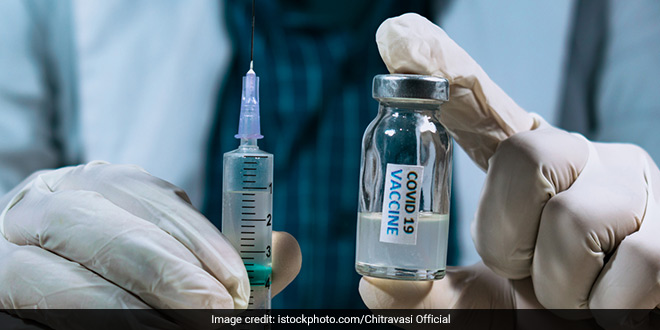New Delhi: With the coronavirus outbreak continuing to leave a trail of devastation across the world, some pharma majors are also working on a ‘cocktail’ of vaccines in order to increase its potency. WHO chief scientist Soumya Swaminathan has said that mixing and matching the COVID vaccines is a “dangerous trend” that could lead to a disaster as there is very little data on its efficacy. NDTV talked to Dr GC Khilnani, Chairman, PSRI Institute of Pulmonary Care to discuss the pros and cons of a vaccine cocktail.
NDTV: What is your view on Vaccine Cocktail?.
Dr GC Khilnani: My views are based on data, studies, knowledge. A was published in the most reputable medical journal, The Lancet, on July 10, 2021, where 420 people who received Covishield, were given a second dose of Pfizer after 12 weeks. They found that these people’s immunity increased by 77-folds. Another data came from Canada, where they tried, 2 doses of Covishield on one group, 2 doses of Pfizer on another and one dose of Covishield followed by the second dose of Pfizer on the third group. It was found that Pfizer after Covishield gave 50-100 fold enhanced immunity.
I think now there is sufficient data to prove that this process gives enhanced immunity. It is also important to look at it from the Indian perspective since we are facing a vaccine shortage. We are hoping Pfizer and Moderna, which are mRNA vaccines, to hit the Indian markets. 90 per cent of Indian have received Covishield and are struggling to find the second dose. So, this information should be utilised to the advantage of India. If we get other vaccines, we can give those as the second dose and there is enough scientific evidence and data to show that this way an individual has enhanced immunity.
Also Read: Pfizer, Moderna Vaccines Cut COVID-19 Risk By 91 Per Cent: Study
NDTV: Why is WHO warning against this process and saying there is not enough data?
Dr GC Khilnani: If we go to the history of COVID-19, WHO never approved Remdesvir, but doctors still used it to save lives. They even took a lot of time to approve the use of steroids in treatment. They have also not yet approved Covaxin, even though the phase three trials have been published in the peer-reviewed journal. So, in my personal opinion, they will eventually see the benefits and agree after scrutinising it thoroughly, as per their process. For now, we need to get more vaccines in the Indian market and utilise them accordingly.
NDTV: How do we know which vaccines to mix?
Dr GC Khilnani: We are not choosers at this moment, my thinking as a physician, is that numbers are important. Instead of vaccinating 89 lakhs people a day, we are only vaccinating 35-40 lakhs. To enhance it, we can use Pfizer or Moderna and improve our inoculation numbers.
NDTV: There are talks of a third booster dose in some countries and this has also sparked a debate, that the vaccines should go to countries with a shortage. So far CDC has said that it is not required. What is your take?
Dr GC Khilnani: This is not a debate at all. A third booster dose has to come and it comes for many diseases. The countries that have sufficient vaccines for their population can think of giving a third dose.
For a country like India, we need to first focus on completing the first two doses, which can give immunity for at least 210 days, as per the research. Beyond that, no one knows how long the vaccine immunity may last. Going by the history of other vaccinations that we know, all the majority of vaccinations be it pneumonia, we know that booster shots are usually required to enhance immunity.
NDTV – Dettol Banega Swasth India campaign is an extension of the five-year-old Banega Swachh India initiative helmed by Campaign Ambassador Amitabh Bachchan. It aims to spread awareness about critical health issues facing the country. In wake of the current COVID-19 pandemic, the need for WASH (Water, Sanitation and Hygiene) is reaffirmed as handwashing is one of the ways to prevent Coronavirus infection and other diseases. The campaign highlights the importance of nutrition and healthcare for women and children to prevent maternal and child mortality, fight malnutrition, stunting, wasting, anaemia and disease prevention through vaccines. Importance of programmes like Public Distribution System (PDS), Mid-day Meal Scheme, POSHAN Abhiyan and the role of Aganwadis and ASHA workers are also covered. Only a Swachh or clean India where toilets are used and open defecation free (ODF) status achieved as part of the Swachh Bharat Abhiyan launched by Prime Minister Narendra Modi in 2014, can eradicate diseases like diahorrea and become a Swasth or healthy India. The campaign will continue to cover issues like air pollution, waste management, plastic ban, manual scavenging and sanitation workers and menstrual hygiene.
[corona_data_new]






























